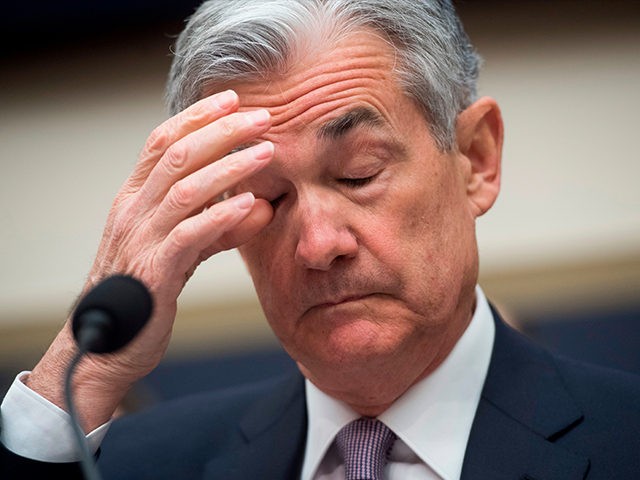If Federal Reserve Chairman Jerome Powell was counting on financial markets to tighten financial conditions following his alleged hawkish turn at the National Association of Business Economists Monday, Tuesday was a wake-up call. Not only did the growth stocks jump, pushing the Nasdaq up 1.95 percent, but the five-year breakeven rate held at the all-time high of 3.52 percent.
In short, the market appeared to register a no-confidence vote on the Fed’s inflation fighting. The longer-term picture is not any prettier. The 10-year breakeven rate, which you’ll recall is calculated by measuring inflation-protected Treasuries against regular Treasuries, indicates that inflation is expected to run at 2.91 percent on average over the next decade, a full point ahead of the Fed’s target.
As we’ve spelled out a number of times, the reason Powell is having trouble establishing himself as a credible inflation fighter is that he still appears to believe in what a Harvard economist described as the theory of “immaculate disinflation.” That is to say, whenever he talks about fighting inflation, Powell insists that he will be able to do so without noticeably slowing growth or raising unemployment. While we agree that this would be ideal, it’s hard to see how it is going to work. At some level, monetary tightening has to act as a drag on the economy if it is going to re-establish price stability after a period of decades-high inflation.
Powell may get some assistance from oil. In the short term, oil is likely to keep driving inflation up by raising the prices of shipping, travel, and production. In the longer term, however, rising oil prices are likely to result in demand destruction – and this will likely not be confined to the destruction of demand for petroleum. Consumers are likely to pull back on other spending because high prices in gasoline are eating up too much household income. As a pair of economists from the Federal Reserve Bank of Dallas argued in a paper published Tuesday, if the Russian oil shock cannot be remedied – and it’s hard to see how it can be – higher oil prices are inevitable and a global economic downturn is likely “unavoidable.”
Tomorrow Powell will give a talk at a virtual conference on innovation put on by the Bank of International Settlements. Maybe he’ll find an innovative way to explain how this time he’s really serious about fighting inflation.

COMMENTS
Please let us know if you're having issues with commenting.